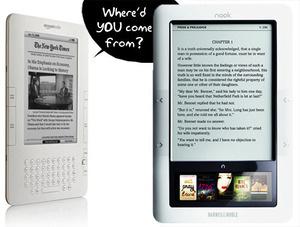Publishing's New Integration II

When we last touched on recent developments in the world of bookselling, it was to discuss Amazon's impending foray into publishing. We noted (with some concern) that coupling Amazon's emergence as the dominant figure in both e-readers and hard copy sales with a well-funded entry into publishing might prove troubling: "It would appear that Amazon, by venturing into publishing, is beginning a process of vertical integration similar to the movie studios of yore. In fact, according to the article, 'Jeffrey P. Bezos, the company’s chief executive, referred several times to Kindle as 'an end-to-end service,'' conjuring up a world in which Amazon develops, promotes and delivers the product."
In fact, these concerns about publishing appeared to be playing out in both publishing as well as in the retail segment. We noted another article from that same week that "details how, in order to make 'Kindle Fire tablet as appealing as possible,' Amazon...'negotiated a deal with DC Comics for the exclusive digital rights to a hundred popular graphic novels.'" The article continued by noting that, because of this deal, "Barnes & Noble, with a tablet of its own to nurture...removed all the copies of the physical volumes from its 1,300 stores, saying it would not carry any book if it were denied the right to sell the digital version." After Barnes & Noble, "Books-a-Million, the third-largest bookseller with 231 stores, followed suit last week, making the same argument."
These developments continue to vex numerous entities in the publishing industry. There are several, intertwined issues at play: The integration of bookselling and publication--especially as it pertains to emergent e-book formats; the creation of allegiances between publishers (such as DC Comics) and distributors (such as Amazon or Barnes & Noble) for exclusive rights across platforms, and the ongoing effects felt by smaller booksellers. These all combine into the nagging question of where and how consumers will be able to access books.
This week's New York Times further investigates this issue and some of its many valences. In an article titled "The Bookstore’s Last Stand" and tagged with the dramatic subheading, "Barnes & Noble, Taking On Amazon in thee Fight of Its Life," Julie Bosman describes the creation of Barnes & Noble's e-reader, observing "the Nook and, by extension, Barnes & Noble, at times seem the only things standing between traditional book publishers and oblivion."
Barnes & Noble currently stands in an odd position. As a major bookstore chain, it is partially responsible for the demise of small, local bookstore. In addition, it bore witness to the death of its peers (B. Dalton Bookseller, Crown Books, Borders, etc.). Now, it stands alone to face Amazon. Amazon has cornered a large market share in book sales; its Kindle is a runaway success, and it continues to do a good deal of business selling hardcopy books. If it continues its attempts to eliminate publishers, it strengthens its ability to eliminate Barnes & Noble.
This has made for strange bedfellows. Publishers are siding with Barnes & Noble in attempts to protect themselves from Amazon's entry into publishing, and all booksellers are watching to see how this affects physical books. So far, results are spurious. Barnes & Noble's shares continue to tumble; their sales projections continue to lag, but they have managed to grab market share from Amazon in the digital market. They hold about 27 percent of that market to Amazon's approximately 60 percent.
This is all to say that the future of publishing is currently very much in contest being decided. Where we get our books, what kinds of books we have access to, and how those books come to be are all issues in the mix.
Nobody is claiming the end of physical books, but...imagine a world where the closest physical bookseller was Target or Walmart. What kinds of books to these places sell? If they were the only proximate booksellers, what kinds of books would people be buying? How would that feedback loop affect publishing?
Now apply these questions to online versions of these sellers. What I'm trying to say is that, rather than applying the utopic digital scenario of everything being available everywhere because it's online, imagine instead companies competing for exclusive rights to electronically distribute and exhibit profit-producing merchandise. What happens to writing that doesn't produce profit? Where does it go, and how do we exhibit it?
These questions are especially pressing for academi publishing. Are we to move to e-publishing. If so, how will these turf wars affect our output? Will our work be available across platforms, or will part of the publication game be hedging bets on allegiances to Apple, Barnes & Noble, or Amazon?
We will stay tuned as this develops.